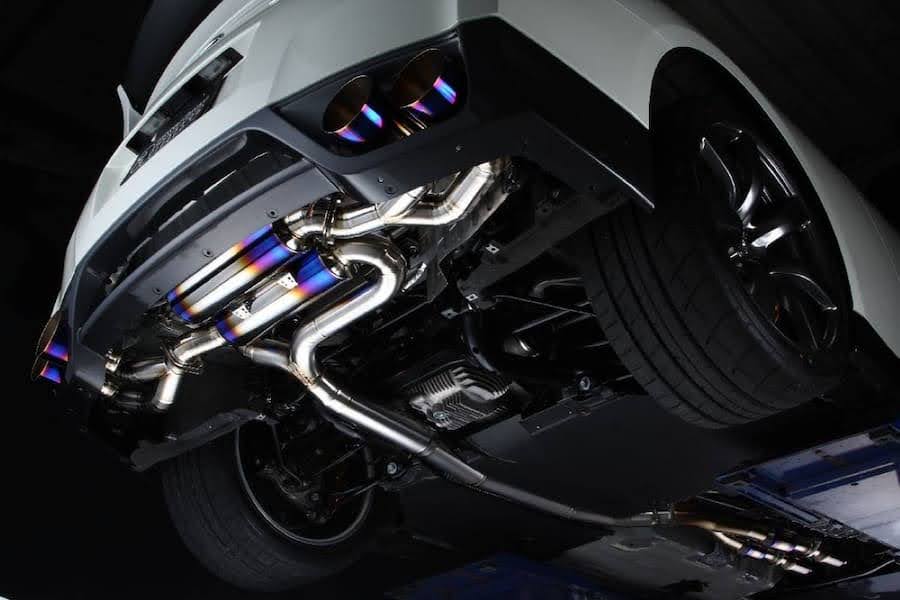How do Car Exhaust Systems Impact Vehicle Performance?

The exhaust system in the vehicle is vital to the operation of your car and is far more than just a set of pipes meant to release engine fumes. If you don’t fix a malfunctioning or broken exhaust system, it may lead to major mechanical problems, decrease fuel efficiency, and restrict your power and acceleration. To assist you in comprehending the connection between your engine bay and tailpipe, we’ve produced this article. Unfortunately, very few drivers are aware of how the exhaust system influences the performance of their engines. Your engine essentially functions as an air pump mechanically, bringing in fresh air for the combustion chambers and releasing exhaust gases into the exhaust. Consequently, an effective engine depends on a well-maintained exhaust system and professional exhaust dpf cleaning, and properly maintained exhaust systems may enhance engine efficiency by enhancing your vehicle’s capacity to cycle air for combustion.
How Do Exhaust Systems Operate?
The resultant gases and undesirable particles (soot, ash, etc.) are forced into the exhaust system & eventually out of the car by the pressure your engine produces. To meet legal requirements, these gases are forced via filters and pipes made to lower noise as well as pollution levels of the waste gases as they are routed out of the engine block. In essence, exhaust systems gather waste products from combustion and apply the pressure created to force them out of the car safely via a network of pipes. However, to make these gases much more secure and quieter, they are passed through filters & mufflers before being released into the atmosphere.
Comprehending the Exhaust System
Although it is sometimes disregarded, the car exhaust system is essential to preserving peak performance. The exhaust system is essential to a car’s general operation since it controls engine noise and releases dangerous pollutants. On the other hand, if exhaust issues occur, the car’s performance as well as efficiency may suffer significantly.
Effect on Power and Efficiency of Engines
Engine performance is seriously affected by the exhaust system. Back pressure, which happens when exhaust gases become backed up on their way out, is decreased by a well-designed system. Reduced back pressure allows the engine to “breathe” more effectively, which increases power output by enhancing the engine’s ability to release these gases. It’s especially apparent in high-performance cars wherein every watt counts.
Control and Reduction of Noise
The exhaust system makes a substantial contribution to noise control in addition to its practical role. An essential part of the setup, the silencer is made to reduce noise from the engine’s exhaust fumes. It’s a fine line, though, as excessive muffling might raise back pressure whilst insufficient muffling may yield a loud, possibly unlawful noise level.
Enhanced Power
Performance exhaust systems increase engine performance by increasing horsepower through the reduction of back pressure and enhancement of airflow.
Reduced Bulk
A lot of performance exhaust systems use lightweight components, including stainless steel, to lower the exhaust system’s general weight. Additional benefits from this weight loss include enhanced acceleration, handling, & energy savings.
What Could Break an Exhaust System?
Because your exhaust system is exposed to the outdoors. Also high temperatures each time you drive, it is particularly susceptible to wear & tear. In addition, the metal in your exhaust pipes will corrode and rust in the presence of rain and grit. This can result in holes in your exhaust system as well as cause them to break away from the car. Nonetheless, the accumulation of dirt and debris from your exhaust gases, which obstructs airflow and, in more extreme situations, causes moving parts to adhere to one another, is the most frequent source of problems with your exhaust system. Diesel vehicles with exhaust system filters (Diesel Particulate Filters, or DPFs) are particularly affected by this issue because these filters can clog up if not kept up with.
Catalytic Converters’ Function in Emission Control
An additional essential part of contemporary exhaust systems is catalytic converters. By changing exhaust gases into less hazardous materials, they contribute to the reduction of harmful emissions. They might offer more back pressure even if they are necessary for the preservation of the environment. Therefore, keeping engine performance whilst meeting pollution regulations requires striking the correct proportion.
Parts of the Exhaust System
Understanding the parts of the exhaust system is essential before exploring how exhaust issues affect the efficiency of a car. The exhaust system is made up of various parts, such as:
- Exhaust manifold
- Catalytic converter
- Muffler
- Tailpipes
Every component has a distinct purpose, like gathering engine gases, lowering toxic levels, limiting engine noise, as well as removing gases from the car.
Final Words
Vehicle performance is significantly affected by the exhaust system. By lowering back pressure & improving gas flow, it influences engine performance. By controlling back pressure and taking into account elements like exhaust pipe design and catalytic converter effectiveness. It also contributes to fuel economy. To prevent the detrimental effects of a malfunctioning system on the car and our surroundings, it is imperative to routinely check and repair the exhaust system.
Visit thinkbomal for more.


